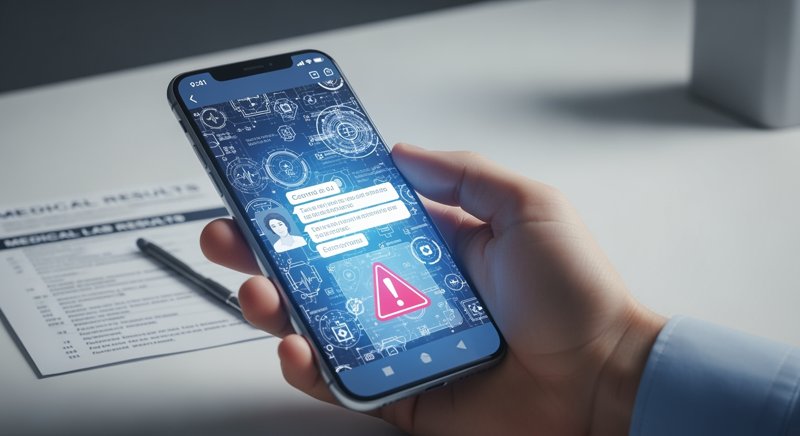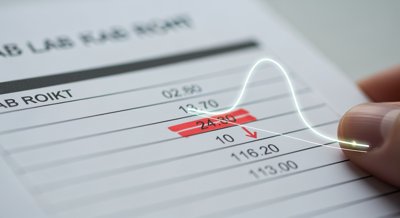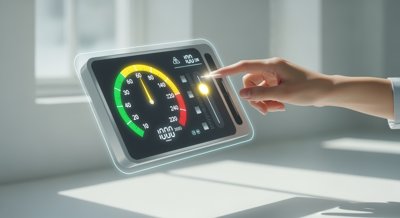🤒 Why MedAssist Beats ChatGPT for Lab Interpretation

ChatGPT, Don’t Catch a Cold: When a Generalist Chatbot Isn’t Your Doctor
Hi from the MedAssist AI team! If you’ve ever opened a PDF with your bloodwork, copied the numbers, and asked ChatGPT “What’s wrong with me, doc?”, you’re not alone. It’s fast, free, and available at 2 a.m. Tempting, right? But your health deserves more than a general-purpose conversationalist. Here’s why a specialized medical assistant is the smarter, safer choice.
1. The Difference Between an Erudite and a Specialist
Imagine your Swiss watch stops. Do you give it to someone who skimmed every Wikipedia article ever written—or to a master watchmaker who repairs that exact mechanism daily?
ChatGPT is the erudite. It has read oceans of text: journal articles, Reddit threads, fan fiction. Its knowledge is broad but not clinically structured. It can connect “elevated bilirubin → jaundice” because the internet mentions it endlessly. But it may miss subtle, multi-marker patterns—say, the combination of ferritin, homocysteine, and vitamin B12—that signals a problem requiring a hematologist.
MedAssist, by contrast, is trained on:
- Peer-reviewed medical research and clinical guidelines.
- Ministry of Health recommendations and leading international protocols.
- A curated knowledge graph linking hundreds of biomarkers.
- Real-world, anonymized case data reviewed by physicians.
Think of it as the difference between a public library and the archives of a medical academy. One is vast; the other is curated for clinical precision.
2. “Hallucinations” Are Annoying in Poetry, Dangerous in Healthcare
Large language models sometimes generate confident-but-false statements—“hallucinations.” They don’t “know”; they predict likely word sequences. Ask them for an obscure diagnosis, and they may fabricate links a clinician would never endorse.
- False alarms: A mildly elevated marker becomes a rare disease. Cue panic, insomnia, unnecessary ER visits.
- False reassurance: Subtle red flags get waved away as “slightly outside the norm,” and a treatable condition advances unchecked.
MedAssist does not improvise. We align your data with evidence-based rules, cross-check patterns, and show the clinical rationale. No speculative fiction—just structured analysis grounded in medicine.
3. Seeing the Forest, Not Just the Trees
Blood tests are symphonies, not solo performances. Doctors review:
- How markers relate to each other.
- Trends over time.
- Your symptoms and history.
- Potential medication effects.
ChatGPT often comments on values individually: “Hemoglobin low → possible anemia. Ferritin low → possible iron deficiency.” But it rarely synthesizes the story: “Low hemoglobin + low RBC + low ferritin + high transferrin saturation suggests iron-deficiency anemia, potentially linked to chronic bleeding—time to see a gastroenterologist.”
MedAssist does exactly that. We evaluate clusters of markers, highlight probable etiologies, and flag which specialist should validate the findings. No guesswork, just a prioritized diagnostic map.
4. Your Medical Data Belongs to You—and Only You
When you paste lab results into a general chatbot, do you know where that data goes? Is it retained for model training? Processed on servers outside your jurisdiction? Privacy policies for consumer chatbots are typically broad and non-medical.
MedAssist operates under strict healthcare-grade security:
- Encrypted data transmission and storage.
- Access logging and role-based permissions.
- Compliance with personal data protection laws (e.g., Russian Federal Law 152-FZ).
- A design philosophy that assumes your labs are confidential medical records—not casual chat fodder.
Your health story stays your own.
5. From “Interesting” to Actionable: What Happens Next?
Even when ChatGPT gives a technically correct answer, it often ends with “consult your doctor,” without helping you prepare for that visit. You’re left with a wall of text and no plan.
MedAssist delivers:
- Problem prioritization. Which deviations matter and why.
- Specialist guidance. “Discuss these markers with an endocrinologist,” not just “see a doctor.”
- Question prompts. Suggested talking points to make your appointment efficient.
- Plain-language explanations. No jargon, no scare tactics, just clarity.
In other words: information that leads to informed action.
When Should You Definitely Choose MedAssist?
| Situation | Why a Specialist Tool Wins |
|---|---|
| Multiple labs with subtle anomalies | Pattern synthesis beats isolated commentary |
| Chronic conditions (thyroid, diabetes, anemia) | Requires tracking trends and guidelines |
| Sensitive personal data | Encrypted healthcare storage > generic chat logs |
| Preparing for a medical appointment | Structured summaries + question lists save time |
| Managing anxiety around results | Clear prioritization calms the nervous system |
Bottom Line
ChatGPT and similar models are extraordinary tools—for brainstorming, drafting, or summarizing. They are not medical devices. Relying on them for lab analysis is a lottery: you might get a helpful hint, a terrifying false alarm, or, worst of all, a dangerous lullaby.
Your health deserves precision, context, confidentiality, and a clear next step. That’s what MedAssist was built to provide. Use general AI where it shines—but let a purpose-built clinical assistant guide you through the maze of biomarkers and medical decisions.
Stay curious, stay critical, and choose your digital health partners as carefully as you choose your clinicians. Your well-being is worth nothing less.




